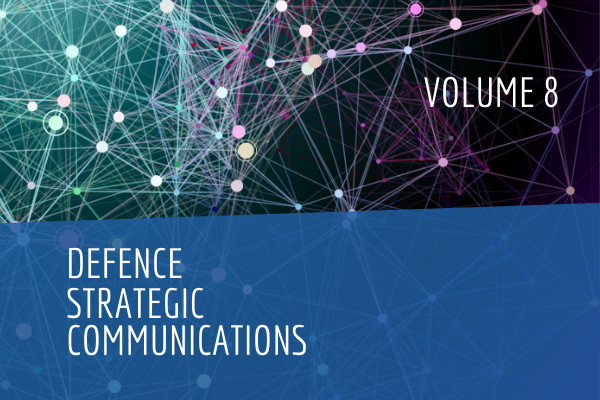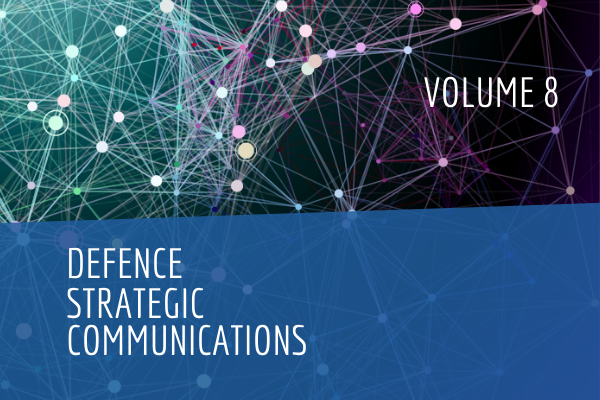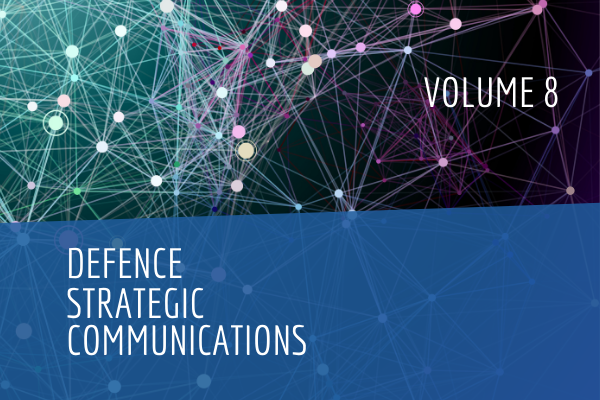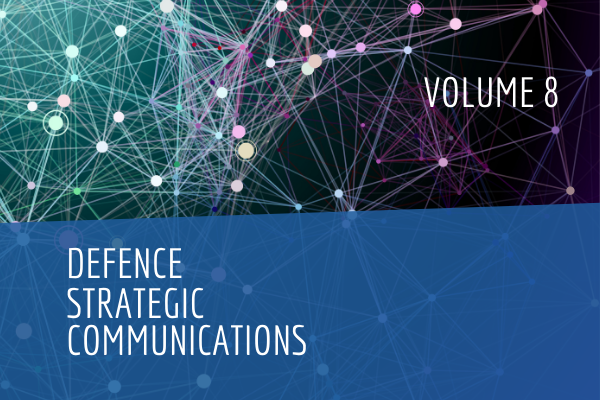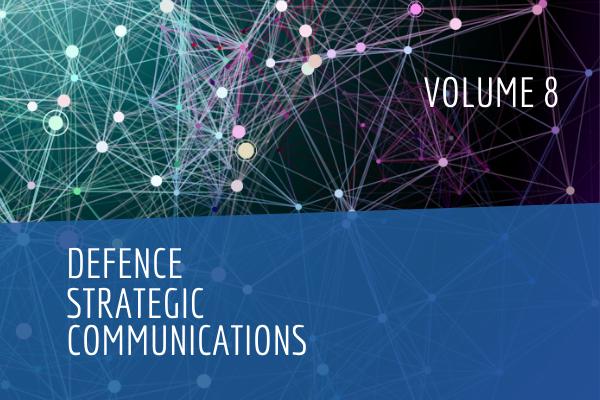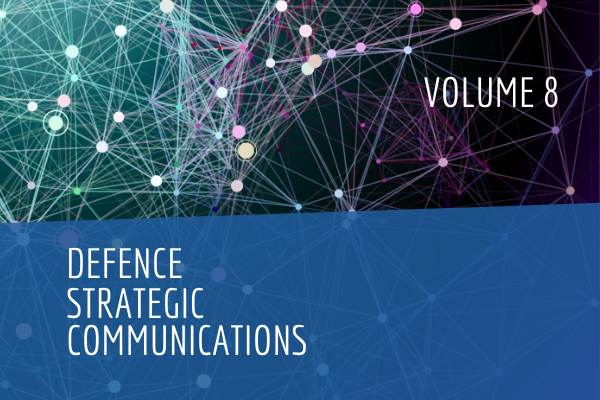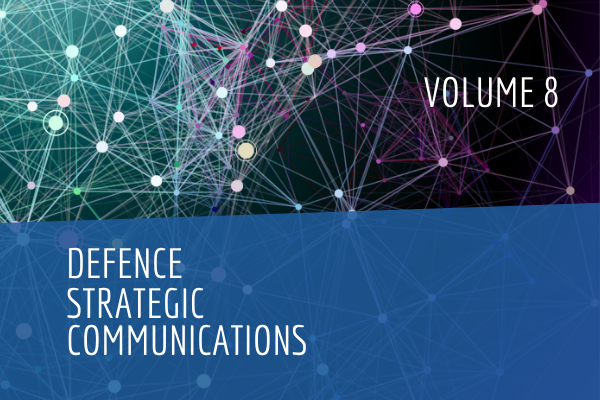Abstract
Disinformation is widely perceived as a profound threat to democracies. The result is an explosion of research on disinformation’s spread and the countermeasures taken against it. Most research has focused on false content spread online. Yet little research has demonstrated the societal impact of disinformation on areas such as trust and social cohesion. Policy responses are mainly based on disinformation’s presumed impact rather than on its actual impact.
This paper advances disinformation research by asking how we can assess its impact more productively, and how research could better inform policy responses to disinformation. It uses examples from Britain between the 2016 ‘Brexit’ referendum campaign and the 2019 General Election, including some preliminary commentary on disinformation during the initial months of the COVID-19 outbreak. First it considers the limitations of existing disinformation research, and how it could address impact more effectively. It then considers how policy responses have been self-limiting by framing the solution as simply reducing the general amount of disinformation online and/or ‘inoculating’ citizens. Instead we argue for an event or issue-specific focus. This culturally-specific, sociological approach considers different forms of disinformation, the hybrid media systems through which they spread, and the complex offline and online social networks through which impact may occur.
Keywords—disinformation, trust, social cohesion, UK, election, Brexit, strategic communication, strategic communications, Britain, COVID-19, coronavirus
About the Authors
Dr Thomas Colley is a Teaching Fellow in War Studies at King’s College London and a Fellow of the King’s Centre for Strategic Communications. His research examines propaganda, strategic communications and war.
Francesca Granelli is a Teaching Fellow for the Strategic Communications MA at King’s College London, where her research focuses on trust. Her latest book is Trust, Politics and Revolution: A European History.
Jente Althuis is a PhD candidate at the King’s Centre for Strategic Communications, in the Department of War Studies at King’s College London. She specialises in the strategic communications of space and urban conflict.
131 Bibliography
Adegoke, Yemisi et al., ‘Like. Share. Kill. Nigerian police say ‘fake news’ on Facebook is killing people’, BBC News, 13 November 2018. [Accessed 4 January 2020]
Alba, Davey and Sheera Frenkel, ‘Russia Tests New Disinformation Tactics in Africa to Expand Influence’, The New York Times, 30 October 2019. [Accessed 18 December 2019]
Allcott, H. and M. Gentzkow, ‘Social Media and Fake News in the 2016 Election’, Journal of Economic Perspectives, 31, Nº 2 (2017): 211–36.
Althuis, J. and L. Haiden, Fake News: A Roadmap (Riga: NATO StratCom Centre of Excellence, 2018).
Annenberg School for Communication, ‘Understanding and Addressing the Disinformation Ecosystem’, Workshop Paper, 15–16 December 2017. [Accessed 24 November 2019]
Baynes, Chris, ‘Eamonn Holmes Fans Flames of 5G Coronavirus Conspiracies By Saying “It Suits State Narrative” for Media to Dismiss Them’, Independent, 2020. [Accessed 24 April 2020]
BBC, ‘BBC Acknowledges “Mistake” in Boris Johnson Editing’, BBC News, 25 November 2019. [Accessed 23 December 2019]
BBC, ‘Phone Masts: A Health Risk? BBC Inside Out, 24 September 2013. [Accessed 24 April 2020]
Benkler, Y., R. Faris, and H. Roberts, Network Propaganda: Manipulation, Disinformation and Radicalization in American Politics (Oxford: Oxford University Press, 2018).
Benner, Thorsten, ‘Britain Knows It’s Selling Out Its National Security to Huawei, Foreign Policy’, Foreign Policy, 31 January 2020. [Accessed 24 April 2020]
Bollen, K. and R. Hoyle, ‘Perceived Cohesion: A Conceptual and Empirical Examination’, Social Forces, 69, Nº 2 (1990): 479–504.
Bosely, S. ‘Mbeki Aids denial ‘caused 300,000 deaths’, The Guardian, 26 November
2008. [Accessed 19 May 2020]
Botsman, R., Who Can You Trust? How Technology Brought Us Together—and Why It Could Drive Us Apart (London: Penguin, 2017).
Boyd, Danah, ‘You Think You Want Media Literacy… Do You?’, Medium, 9 March 2018. [Accessed 13 December 2019]
Bradshaw, Samantha and Phillip Howard, The Global Disinformation Order: 2019 Global Inventory of Organised Social Media Manipulation, (Oxford: Oxford Internet Institute, 2019). [Accessed 23 December 2019]
Brexit Party, ‘Contract with the People’, thebrexitparty.org (2019). [Accessed 23 December 2019]
Bulger, Monica and Patrick Davison, ‘The Promises, Challenges and Futures of Media Literacy’, Data and Society, 21 February 2018. [Accessed 21 December 2019]
Burgess, Matt, ‘Here’s the First Evidence Russia Used Twitter to Influence Brexit’, 10 November, Wired, 10 November 2017. [Accessed 18 December 2019]
Busby, Mattha et al., ‘Types of Misinformation During the UK Election’, First Draft, 23 June 2017. [Accessed 3 January 2020]
Cadwalladr, Carole, ‘The Great British Brexit Robbery: How Our Democracy Was Hijacked’, The Guardian, 7 May 2019. [Accessed 15 December 2019]
Carlson, Matt, ‘Fake News as an Informational Moral Panic: The Symbolic Deviancy of Social Media During the 2016 US Presidential Election’, Information, Communication & Society, 23, Nº 3 (2018): 374—88.
Chadwick, Andrew, The Hybrid Media System: Politics and Power, 2nd ed. (Oxford: Oxford University Press, 2017).
Chadwick, Andrew, Cristian Vaccari, and Ben O’Loughlin, ‘Do Tabloids Poison the Well of Social Media?’, New Media & Society, 20, Nº 11 (2018): 4255—74.
Chakrabarti, Santanu et al., Duty, Identity, Credibility: Fake News and the Ordinary Citizen in Kenya and Nigeria—A Comparative Study, BBC News independent study, (2018). [Accessed 14 December 2019]
133 Chan, Joseph, Hong-Po To, and Elaine Chan, ‘Reconsidering Social Cohesion: Developing a Definition and Analytical Framework for Empirical Research’, Social Indicators Research, 75, Nº 2 (2006): 273—302.
Clark, J. R. and Dwight Lee, ‘The Optimal Trust in Government’, Eastern Economic Journal, 27, Nº 1 (2001): 19—34.
Connett, David, ‘Scottish Stock Market Trader “Cost Shareholders £1m with Fake Tweets”’, Independent, 6 November 2015. [Accessed 18 December 2019]
Crime and Security Research Institute, ‘Rumours About the Efficacy of Ibuprofen vs Paracetamol in Treating COVID-19 Symptoms: The Making of a Misinformation ‘Soft Fact’ With Public Health Impact’, Cardiff University, 2020. [Accessed 18 May 2020]
Dearden, Lizzie, ‘New Zealand Attack: How Nonsensical White Genocide Conspiracy Theory Cited by Alleged Gunman is Spreading Poison Around the World’, Independent, 16 March 2019. [Accessed 16 January 2020]
Department for Digital, Culture, Media and Sport (DCMS), Online Harms White Paper, HM Government, 2019. [Accessed 18 December 2019]
Dodds, Laurence, ‘Twitter Accuses Conservatives of “Misleading” Voters by Posing as Fact-checking Account During Election Debate’, The Telegraph, 20 November 2019. [Accessed 17 December 2019]
European Commission, A Multi-dimensional Approach to Disinformation: Report of the Independent High Level Group on Fake News and Online Disinformation (Luxembourg: Publications Office in the European Union, 2018). [Accessed 2 December 2019]
European Committee for Social Cohesion, A New Strategy for Social Cohesion, (Strasbourg: Council of Europe Publishing, 2004). [Accessed 16 January 2020]
Fildes, Nic et al., ‘How a 5G Coronavirus Conspiracy Spread Across Europe’, Financial Times, 16 April 2020.
Firth, C., D. Maye, and D. Pearson, ‘Developing “Community” in Community Gardens’, Local Environment, 16, Nº 6 (2011): 555–68.
Flint, J., and D. Robinson, Community Cohesion in Crisis? New Dimensions of Diversity and Difference (Bristol: The Policy Press, 2008).
Flynn, D. J., Brendan Nyhan, and Jason Reifler, ‘The Nature and Origins of Misperceptions: Understanding False and Unsupported Beliefs About Politics’, Political Psychology, 38, Nº S1 (2017): 127–50.
Friedkin, N., ‘Social Cohesion’, Annual Review of Sociology, 30, Nº 1 (2004): 409— 25.
Granelli, F., ‘What Does it Mean for a Communication to be Trusted?’, Defence Strategic Communications, 5 (2018): 171—214.
Grice, Andrew, ‘Fake News Handed Brexiteers the Referendum—And Now They Have no Idea What They’re Doing’, Independent, 18 January 2017. [Accessed 15 February 2019]
Grimalda, Gianluca and Nicholas Tanzer, Social Cohesion, Global Governance and the Future of Politics: Understanding and Fostering Social Cohesion, Think 20 Argentina, (Consejo Argentino para las Relaciones Internacionales, 2018). [Accessed 16 December 2019]
Guess, Andrew, Jonathan Nagler and Joshua Tucker, ‘Less Than You Think: Prevalence and Predictors of Fake News Dissemination on Facebook’, Science Advances, 5, Nº 1 (2019): 1—9.
Hameleers, M. et al., ‘A Picture Paints a Thousand Lies? The Effects and Mechanisms of Multimodal Disinformation and Rebuttals Disseminated via Social Media’, Political Communication, 37, Nº 2 (2020): 281–301.
Heller, J. ‘Rumors and Realities: Making Sense of HIV/AIDS Conspiracy Narratives and Contemporary Legends’, American Journal of Public Health 105 (2015): 43–50.
Henri, F. and B. Pudelko, ‘Understanding and Analysing Activity and Learning in Virtual Communities’, Journal of Computer Assisted Learning, 19, Nº 4 (2003): 474–87.
Hern, Alex (a), ‘Britons Less Trusting of Social Media Than Other Major Nations’, The Guardian, 3 May 2019. [Accessed 3 May 2019]
Hern, Alex (b), ‘How the Tories Won the Online Election: Pick a Line, Ignore the Facts and Repeat’, The Guardian, 14 December 2019b. [Accessed 15 December 2019]
135 Innes, Martin, ‘Soft Facts and Digital Behavioural Influencing After the 2017 Terror Attacks’, Crest Research, 2020. [Accessed 18 May 2020]
House of Commons Digital, Culture, Media and Sport Committee, ‘Disinformation and “Fake News”: Final Report’, Eighth Report of Session 2017–19’, HC1791, 14 February 2019. [Accessed 18 February 2019]
Hua, Jingling, and Rajib Shaw, ‘Corona Virus (COVID-19) “Infodemic” and Emerging Issues through a Data Lens: The Case of China’, International Journal of Environmental Research and Public Health 17, Nº 7 (2020): 2309.
Ingram, Haroro, ‘Pandemic Propaganda and the Global Democracy Crisis’. [Accessed 18 May 2020]
Ipsos MORI, ‘Fake News, Filter Bubbles and Post-Truth are Other People’s Problems’, 6 September 2018. [Accessed 13 February 2019]
Jacobs, L. et al., Talking Together: Public Deliberation and Political Participation in America, (Chicago: University of Chicago Press, 2009).
Jamieson, Kathleen, Cyberwar: How Russian Hackers and Trolls Helped Elect a President – What We Don’t, Can’t and Do Know (New York: Oxford University Press, 2018).
Jeong, S., H. Cho and Y. Hwang, ‘Media Literacy Interventions: A Meta-analytic Review’, Journal of Communication, 62 (2012): 454–72.
Kessler, Glenn et al., ‘President Trump Has Made More Than 10,000 False or Misleading Claims’, Washington Post, 29 April 2019. [Accessed 1 December 2019]
Larson, H. et al., ‘The State of Vaccine Confidence 2016: Global Insights Through a 67-Country Survey’, EBioMedicine 12 (2016): 295–301.
Lewandowsky S. et al., ‘Misinformation and Its Correction: Continued Influence and Successful Debiasing’, Psychological Science in the Public Interest 13 (2012): 106– 31.
Lewis, Kate, ‘5G is Not Accelerating the Spread of the New Coronavirus’, FullFact, 31 March 2020. [Accessed 24 April 2020]
Mackay, A. and Steve Tatham, Behavioural Conflict: Why Understanding People and
Their Motivations Will Prove Decisive in Future Conflict (Saffron Walden: Military Studies Press, 2011)
Mahrt, M., ‘Conversations About Local Media and Their Role in Community Integration’, Communications 33, Nº 2 (2008): 233–46.
Mance, H., ‘Britain Has Had Enough of Experts, Says Gove’, Financial Times, 2016. [Accessed 24 April 2020]
Manzo, L. and D. Perkins, ‘Finding Common Ground: The Importance of Place Attachment to Community Participation and Planning’, Journal of Planning Literature 20, Nº 4 (2006): 335–50.
Marchal, N. et al. (a), ‘Junk News and Information Sharing During the 2019 UK General Election’ (Oxford: Oxford Internet Institute, 2019). [Accessed 20 December 2019]
Marchal, N. et al. (b), ‘Junk News and Information Sharing During the 2019 UK General Election: Online Supplement to Data Memo 2019.4’ (Oxford: Oxford Internet Institute, 2019). [Accessed 20 December 2019]
Marwick, A., ‘Why Do People Share Fake News? A Sociotechnical Model of Media Effects’, Georgetown Law Technology Review, 2 (2018): 474–512.
Marwick, Alice and Rebecca Lewis, ‘Media Manipulation and Disinformation Online’, Data and Society, 15 May 2017. [Accessed 18 December 2019]
Mayes, Joe and Kitty Donaldson, ‘U.K. Plans to Review Rules After 2019 Campaign of Lies and Smears’, Bloomberg, 10 December 2019. [Accessed 19 December 2019]
Mejias, U. and N. Vokuev, ‘Disinformation and the Media: The Case of Russia and Ukraine’, Media, Culture & Society 39, Nº 7 (2017): 1027–42.
Merrick, Rob, ‘Tory Minister Says “No One Gives a Toss” About Fake Fact Checker Set Up by Official Party Twitter Account’, Independent, 20 November 2019. [Accessed 14 January 2020]
Mishler, W. and R. Rose, ‘What are the Origins of Political Trust? Testing Institutional and Cultural Theories in Post-Communist Societies’, Comparative Political Studies 34, Nº 1 (2001): 30–62.
137 Mozur, Paul, ‘A Genocide Incited on Facebook, With Posts From Myanmar’s Military’, New York Times, 15 October 2018. [Accessed 13 February 2019]
Nattrass, N., ‘Understanding the Origins and Prevalence of AIDS Conspiracy Beliefs in the United States and South Africa’, Sociology of Health & Illness, 35, Nº 1 (2013): 113–29.
Newman, N. et al., Reuters Institute Digital News Report 2018 (Reuters Institute and the University of Oxford, 2018). [Accessed 12 December 2019]
Nickerson, R. S., ‘Confirmation Bias: A Ubiquitous Phenomenon in Many Guises’, Review of General Psychology, 2, Nº 2 (1998): 175–220.
Olive, Jacqueline et al., ‘The State of the Antivaccine Movement in the United States: A Focused Examination of Nonmedical Exemptions in states and Counties’, PLOS Medicine, 15, Nº 6 (2018).
Page, Carly, ‘UK Mobile Networks Slam ‘Baseless’ 5G Conspiracy Theories Behind Mast Fires’, Forbes, 2020. [Accessed 24 April 2020]
Paul, Christopher and Miriam Matthews, ‘The Russian ‘Firehose of Falsehood’ Propaganda Model: Why it Might Work and Options to Counter It’, The RAND Corporation, 2016. [Accessed 15 January 2020]
Pennycook, Gordon, Tyrone Cannon and David Rand, ‘Prior Exposure Increases Perceived Accuracy of Fake News’, Journal of Experimental Psychology: General, 147, Nº 12 (2018): 1865–80. [Accessed 12 February 2019]
Perera, A. ‘Who Can Stop India WhatsApp Lynchings?’, BBC, 5 July 2018. [Accessed 3 February 2019]
Putnam, R., Bowling Alone: The Collapse and Revival of American Community (New York: Simon & Schuster, 2000).
Ramsey, G. and S. Robertshaw, ‘Weaponising news: RT, Sputnik and targeted disinformation’, The Policy Institute: Centre for the study of Media, Communication and Power, King’s College London, 2019. [Accessed 3 February 2019]
Rapoza, Kenneth, ‘Can “Fake News” Impact the Stock Market?’, Forbes, 26 February 2017. [Accessed 3 February 2019]
Reid, Alastair and Carlotta Dotto, ‘Thousands of Misleading Conservative Ads Side-step Scrutiny Thanks to Facebook Policy’, First Draft News, 6 December 2019. [Accessed 17 December 2019]
Rogstad, I., ‘Is Twitter Just Rehashing? Intermedia Agenda Setting Between Twitter and Mainstream Media’, Journal of Information Technology & Politics, 13, Nº 2 (2016): 142–58.
Rushkoff, D., D. Pescovitz and J. Dunagan, ‘The Biology of Disinformation: Memes, Media Viruses and Cultural Inoculation’, Institute for the Future, 2018. [Accessed 20 December 2019]
Scheufele, D. A., and N. Krause, ‘Science Audiences, Misinformation, and Fake News’, Proceedings of the National Academy of Sciences 116, Nº 16 (2019): 7662–69.
Schiefer, D. and J. van der Noll, ‘The Essentials of Social Cohesion: A Literature Review’, Social Indicators Research, 132 (2017): 579–603.
Schulman, Roy and David Siman-Tov, ‘From Biological Weapons to Miracle Drugs: Fake News about the Coronavirus Pandemic’, Institute for National Security Studies, Insight 1275, 18 March 2020. [Accessed 24 April 2020]
Shahab, L. et al., ‘Prevalence of Beliefs about Actual and Mythical Causes of Cancer and Their Association with Socio-Demographic and Health-Related Characteristics: Findings from a Cross-Sectional Survey in England’, European Journal of Cancer, 103 (2018): 308–16.
‘Share Checklist: Don’t Feed the Beast’, HM Government, 2019. [Accessed 20 December 2019]
Silverman, Craig, ‘This Analysis Shows How Viral Fake Election News Stories Outperformed Real News On Facebook’, BuzzFeed News, 16 November 2016. [Accessed 17 December 2018]
Silverman, Craig, and Jeremy Singer-Vine, ‘Most Americans Who See Fake News Believe It, New Survey Says’, Buzzfeed News, 6 December 2016. [Accessed 12 December 2019]
Smith, Mikey, ‘Vandalism of 5G Masts over “Crazed” Coronavirus Theory “Putting Lives at Risk”’, The Mirror, 6 April 2020.
139 Suhay, Elizabeth et al., ‘The Polarizing Effects of Online Partisan Criticism: Evidence from Two Experiments’, The International Journal of Press/Politics, 23, Nº 1 (2018): 95–115.
Tandoc Edson C. et al., ‘Diffusion of Disinformation: How Social Media Users Respond to Fake News and Why’, Journalism, 21, Nº 3 (2020): 381–98.
Temperton, James, ‘How the 5G Coronavirus Conspiracy Theory Tore through the Internet’, Wired, 6 April 2020. [Accessed 24 April 2020]
The Telegraph, ‘Mobile Mast Blamed for Cancer Cluster’, 9 April 2010. [Accessed 24 April 2020]
Tucker, Joshua A. et al., Social Media, Political Polarization and Political Disinformation: A Review of the Scientific Literature, Hewlett Foundation, 19 March 2018. [Accessed 15 November 2019]
Uberoi, Elise, and Neil Johnston, ‘Political disengagement in the UK: who is disengaged? House of Commons Library, Briefing Paper CBP-7501, 16 October 2019.
Vaccari, Cristian and Andrew Chadwick, ‘Deepfakes and Disinformation: Exploring the Impact of Synthetic Political Video on Deception, Uncertainty, and Trust in News’, Social Media & Society, 6, Nº 1 (2020).
Van der Linden, Sander et al., ‘Inoculating the Public against Misinformation about Climate Change’, Global Challenges, 1, Nº 2 (2017). [Accessed 18 December 2019]
Vigdor, Neil, ‘Man Fatally Poisons Himself While Self-Medicating for Coronavirus, Doctor Says’, New York Times, 24 March 2020.
Vosoughi, Soroush, Deb Roy, and Sinan Aral, ‘The Spread of True and False News Online’, Science, 359, Nº 6380 (2018): 1146–51.
Waisbord, Silvio, ‘Truth Is What Happens to News: On Journalism, Fake News, and Post-Truth’, Journalism Studies, 19, Nº 13 (2018): 1866–78.
Wallen, Joe, ‘25,000 Children in Pakistan Rushed to Hospital after Spread of False Polio Vaccine Rumours’, The Telegraph, 23 April 2019. [Accessed 18 December 2019]
Wardle, Claire, ‘Fake News: It’s Complicated’, First Draft, 16 February 2017. [Accessed 14 December 2019]
Watts, John T., Whose Truth? Sovereignty, Disinformation and Winning the Battle of Trust, Atlantic Council, 19 September 2018. [Accessed 17 December 2019]
Weeks, Brian E., ‘Emotions, Partisanship, and Misperceptions: How Anger and Anxiety Moderate the Effect of Partisan Bias on Susceptibility to Political Misinformation’, Journal of Communication, 65, Nº 4 (2015): 699–719.
Wineburg, Sam et al., Evaluating Information: The Cornerstone of Civic Online Reasoning, Stanford History Education Group, 2016. [Accessed 15 January 2020]
Woolley, Samuel C., and Philip N. Howard (eds), Computational Propaganda: Political Parties, Politicians, and Political Manipulation on Social Media (Oxford: Oxford University Press, 2018).
Zarocostas, John, ‘How to Fight an Infodemic’, The Lancet, 395, Nº 10225 (2020): 676.
Zimmermann, Fabian, and Matthias Kohring, ‘Mistrust, Disinforming News, and Vote Choice: A Panel Survey on the Origins and Consequences of Believing Disinformation in the 2017 German Parliamentary Election’, Political Communication, 37, Nº 2 (2020): 215–37.
